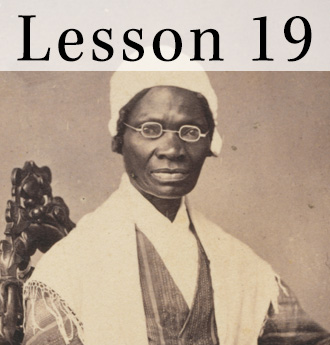Lesson 19: How does the Constitution protect your right to equal protection of the laws?
Civil Rights Act of 1964 This law ended segregation in public places, including restaurants, movie theaters, and hotels. The law also said that employers could not unfairly discriminate against people because of their race, national origin, religion, or gender.
Civil War Amendments The Thirteenth, Fourteenth, and Fifteenth Amendments to the Constitution passed after the Civil War. These amendments were intended to give former slaves the rights of citizens.
equal protection clause The part of the Fourteenth Amendment that has been used to prevent states from being unfair to citizens because of their race or gender. It prohibits laws that unreasonably and unfairly favor some groups over others.
equal protection of the laws Treating all individuals or groups of people equally under the law, unless there is a good and fair reason for not doing so.
segregate To separate people in schools and other public places according to such things as their race.
Voting Rights Act The act passed in 1965 that further protected the right to vote for all U.S. citizens. It forced the states to obey the Constitution. It made it clear that the right to vote could not be denied because of a person's color or race.




